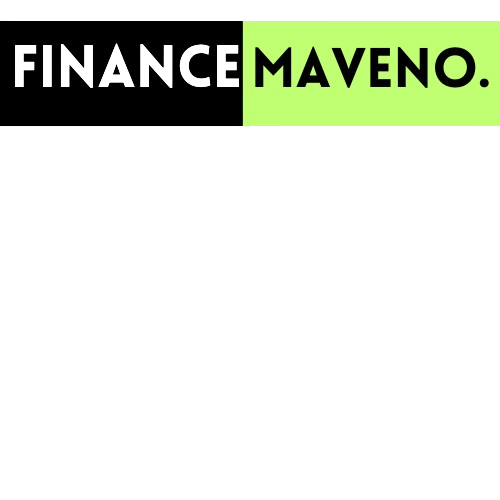Difference Between Robinhood and Acorns – A Comprehensive Comparison For Investors
When it comes to investing, Robinhood and Acorns are two popular platforms that offer different approaches.

GOKAPITAL BUSINESS LOANS
BUSINESS
LENDING MADE SIMPLE!
Secure online application only takes minutes.
Understanding the key differences between Robinhood and Acorns can help you make informed decisions about where to invest your money.
Let’s explore the distinctive features of each platform to determine which one may be better suited to your investment goals.
Investment apps have surged in popularity, offering users convenient avenues to engage with the stock market,…
…and manage their financial portfolios right from their smartphones.

ONLINE PERSONAL LOANS MADE EASY.
LOW RATES, EASY PROCESS!
Loan Amounts: $25,000 up to $500,000 | Terms: 1 to 5 years with monthly payments | Rates: Range from 6%-18%
Among these apps, Robinhood and Acorns are standout performers, making significant strides in democratizing investing for the average person.
Robinhood appeals to those interested in hands-on stock trading without commission fees,…
…while Acorns introduces a novel approach to saving by rounding up daily purchases for micro-investing.
For both seasoned investors and beginners, it’s imperative to weigh the unique features, benefits, and investment philosophies that each of these platforms offer.
Making an informed decision between Robinhood’s active trading platform and Acorns’ automated savings and investment strategies can substantially impact one’s financial trajectory.
KEY TAKEAWAYS –
- Emerging Trend: Investment apps like Robinhood and Acorns have transformed how individuals access and manage their investments.
- User Consideration: Choosing the right platform depends on understanding each app’s distinct features, investment strategies, and fee structures.
- Financial Impact: An informed decision between active trading with Robinhood and the passive, automated approach of Acorns can greatly affect personal financial success.

What is Robinhood?
Robinhood stands as a beacon among modern financial technology platforms, designed with a clear purpose: to democratize finance for all.
Primarily serving a demographic that seeks straightforward entry points into the trading world,
Robinhood appeals to the tech-savvy, younger investor keen on navigating the financial markets.
This app caters to those who appreciate a streamlined, intuitive experience when it comes to buying and selling stocks.
At its core, Robinhood operates as a stock trading platform, offering you the tools to trade stocks, options, and cryptocurrency without worrying about commission fees that typically gnaw at investment returns.
The platform takes pride in its ability to bring the stock market to your fingertips, making investment opportunities in publicly traded companies accessible even to those with limited initial capital.
As such, Robinhood focuses on removing traditional barriers that might deter a newcomer from engaging with the stock market, ensuring that anyone with a smartphone and an appetite for investment can take part in economic growth.
Robinhood’s Key Features
- Commission-Free Trades: You can buy and sell stocks, options, and cryptocurrencies without paying a commission, which reduces your investment costs.
- Real-Time Market Data: Receive up-to-the-minute financial information to make informed trading decisions.
- User-Friendly Interface: Navigate the app with ease due to its clean, intuitive design, making it accessible for traders of all experience levels.
- No Minimum Balance: Start investing without the stress of meeting a minimum account balance.
- Instant Deposits: Access funds immediately with instant deposits, ensuring you can trade quickly when opportunities arise.
- Extended Trading Hours: Trade before and after the standard market hours, giving you more flexibility and a chance to react to news events.
- Cash Management: Take advantage of the integrated cash management account to earn interest on uninvested cash.
- Robinhood Gold: Upgrade to a premium account for advanced features like professional research reports and margin trading.
- Customizable Alerts: Personalize notifications for price movements, so you never miss a chance to buy or sell at your preferred price.
- Dividend Reinvestment Plan (DRIP): Automatically reinvest dividends to compound your investments over time.
- Crypto Trading: Diversify your portfolio by trading in a variety of cryptocurrencies alongside traditional investments.
Advantages of Using Robinhood
- Commission-Free Trades: You benefit from executing trades without commission fees, from stocks to options, enhancing affordability and ease.
- Real-Time Market Data: You gain access to up-to-the-minute financial information, enabling informed decision-making on trades.
- User-Friendly Interface: You’ll find navigation straightforward, making your investment journey more manageable, especially for novices.
- Instant Deposits: You can transfer funds to your account swiftly, ensuring immediate trading opportunities without unnecessary delays.
- No Account Minimum: You can start investing with any amount. This feature invites you to invest without the burden of high initial capital.
- Streamlined Account Setup: You can begin trading promptly after a simple and fast account creation process.
- Extended Trading Hours: You have the advantage of trading during pre-market and after-hours, allowing flexibility beyond standard market times.
- Access to Cryptocurrency: You can diversify investments by trading major cryptocurrencies alongside traditional investment instruments.
- Cash Management: You can earn interest on uninvested funds in your account, optimizing returns even when you’re not actively trading.
What is Acorns?
Acorns is an app designed to democratize the often intimidating world of investing.
Its main purpose is to make investing effortless, particularly for those new to growing their wealth or who might have limited funds to invest.
The platform is tailored for younger adults or any beginner investors eager to save for the future without needing to actively manage their investments.
Acorns simplifies the investment process through its micro-investing feature known as ‘Round-Ups’.
With this, the app rounds up your everyday purchases to the nearest dollar and invests the spare change into a diversified portfolio of ETFs.
This piggybacking on routine transactions allows users to accumulate investments over time without feeling the pinch on their wallets.
Acorns’ Key Features
- Automated Investing: Acorns simplifies investing by automatically investing your spare change from daily purchases into a diversified portfolio.
- Round-Ups: When you link a debit or credit card, Acorns rounds up each transaction to the nearest dollar, investing the difference.
- Diversified ETF Portfolios: Acorns provides users with expert-built ETF portfolios designed to suit different risk tolerances and financial goals.
- Found Money: The more you shop with Acorns’ partners, the more bonus investments you receive, contributing to your savings.
- Recurring Contributions: You can set up daily, weekly, or monthly contributions to steadily build your investment over time.
- Retirement Savings: Acorns offers retirement accounts like IRAs, enabling you to plan for the future while benefiting from potential tax advantages.
- Acorns Earn: By shopping with partners or using Acorns’ Chrome extension, you can earn investment bonuses applied directly to your account.
- Financial Literacy Content: Through Acorns Grow, the app provides educational content to help users understand investing and financial wellness.
Advantages of Using Acorns
- Automated Investing: Acorns simplifies the investment process by automatically investing spare change through its Round-Ups feature and recurring investments, which makes saving effortless.
- Micro-Investing: You can start investing with a small amount of money, making Acorns accessible even if you have limited capital.
- Passive Savings: Acorns encourages consistent savings with its round-up feature, turning everyday purchases into investment opportunities without extra effort on your part.
- Built-In Diversification: Your investments are spread across a range of ETFs portfolios, reducing risk and providing exposure to multiple markets.
- Retirement Savings Options: Acorns offers Individual Retirement Accounts (IRAs), helping you plan for the long term with traditional, Roth, or SEP IRA options.
- Educational Content: The Acorns Grow platform provides financial literacy content, helping you understand the basics of investing and personal finance.
- Predictable Fees: With a flat monthly fee structure, you know exactly how much you are paying for the service, avoiding surprises.
- Family Features: Acorns Family plan includes investment accounts for children, allowing you to invest in your family’s future and teach your kids about money.
- Eco-Friendly Investment Options: Offers the option to invest in socially responsible ETFs, aligning your portfolio with your values.
- Partnerships and Rewards: You can earn investment bonuses by shopping with partner brands, turning everyday purchases into an opportunity to grow your wealth.
Fee Structures Compared
You may have already noticed that both Robinhood and Acorns allow you to enter the investing world, but their fee structures reveal a different approach to pricing. Robinhood takes pride in offering commission-free trades.
This means you can buy and sell stocks, options, ETFs, and cryptocurrencies without worrying about a transaction fee eating into your profits.
They do, however, offer a premium subscription called Robinhood Gold, which provides additional features such as professional research and Level II market data for a monthly fee.
On the flip side, Acorns has a tiered subscription model that may be more suited to those focusing on growing savings gradually. Rather than charging per trade,
Acorns’ monthly fee – which includes the full suite of its services – ranges from a few dollars upward, depending on the plan you choose.
Their services encompass automatic investing in diversified portfolios, retirement accounts, and a debit card option, among others.
While this fee is predictable, it is worth noting that for small account balances, it can represent a higher percentage of your investment compared to accounts with larger balances.
So, when you weigh your options, think about how often you plan to trade and how much you intend to invest.
If frequent stock trading is your style, Robinhood’s model could be more economical, whereas if you prefer a set-and-forget method with financial tools at your disposal, Acorns’ all-in-one fee might make more sense.
Assess your financial habits and goals carefully to determine which pricing model aligns with your investment strategy.
Investment Approach
You have distinct choices when it comes to investing through apps like Robinhood and Acorns, each tailored to different styles of financial engagement. Robinhood champions an active trading approach.
As a user, you dive into stock trading with control over every buy or sell decision.
You’re at the helm, making rapid moves based on real-time market data, aligning with an investment philosophy that hinges on timing and market analysis.
This caters to those who enjoy the thrill of the stock market and have the time to stay on top of fluctuations.
On the other hand, Acorns’ strategy simplifies the investment process with a passive approach. Acorns specializes in micro-investing; you invest spare change automatically without the need to actively manage trades.
Your purchases are rounded up, and these small amounts are funneled into ETFs portfolios designed for various investor profiles.
Acorns espouses a ‘set it and forget it’ philosophy, where the focus is on building wealth gradually over time.
For you, this could mean a stress-free investment experience, where the app does the heavy lifting in the background of your everyday life.
Thus, Robinhood attracts those seeking an active role in investment, constantly staying abreast of the stock market, while Acorns appeals to you if you prefer a hands-off, long-term wealth-growing tactic.
Both have their merits, and your choice hinges on how involved you want to be with your investments.
Minimum Investment Requirements
- Robinhood’s Minimum: You can start investing with no minimum balance requirement, making it accessible even if you’re starting small.
- Acorns’ Minimum: Acorns requires a small amount to begin. Invest as little as $5 after linking your bank account, catering to micro-investors.
- Funding Flexibility: Robinhood allows you to deposit any amount, enabling gradual portfolio growth over time.
- Automated Savings: Acorns rounds up your purchases to the nearest dollar, investing the spare change automatically, which is perfect if you struggle to save.
- Investment Growth: On Robinhood, you can purchase fractional shares, providing the flexibility to start investing in high-priced stocks with limited funds.
- Scheduled Deposits: Acorns offers scheduled contributions to your investment account, facilitating a consistent and disciplined investment strategy.
- Suitable For Different Users: Both apps cater to distinct investor groups; Robinhood appeals to active investors, while Acorns suits those preferring a passive, steady saving approach to investing.
Ease of Use
Investment apps are an avenue to financial growth, but navigating them can be daunting for a newcomer.
You need an interface that doesn’t confuse more than it clarifies. Take Robinhood: their sleek design targets a demographic eager for direct stock market engagement.
With a minimalist layout, you’re able to execute trades without wading through cumbersome menus. The streamlined experience aims to remove barriers for those exploring stock trading for the first time.
Acorns, on the other hand, embraces a nurturing approach for beginners. Its interface is designed to gently guide you through the process of saving and investing spare change.
The visual cues help you understand where your money goes and how it grows, establishing a less intimidating entry into the world of investing. The process is intuitive – facilitating an automatic investment strategy that requires minimal user interaction and decision-making.
In user-friendliness and simplicity, both apps excel, yet their interfaces cater to distinct styles of interaction. Robinhood invites active participation, while Acorns excels in setting up a passive financial growth environment.
You choose based on personal preference and investment style: the hands-on approach of Robinhood or the set-it-and-forget-it ease of Acorns.
User Interface Designs
The interface of Robinhood is renowned for its sleek, minimalist design, which appeals immensely to users who favor functionality without unnecessary clutter.
Large, clear fonts and a simple color palette maintain focus on the essential elements – the numbers and charts representing market statistics.
A continuous effort to streamline the user’s path to major features, like buying and selling, contributes positively to the overall experience.
This direct approach minimizes distractions, allowing traders to execute swift actions in a market that often rewards prompt decision-making.
In contrast, Acorns adopts a more approachable aesthetic, making the world of investing less intimidating for novices.
Its interface integrates playful graphics and educational prompts that align with its goal to demystify financial processes. Users experience an intuitive flow from one activity to the next, with visual cues that encourage interaction and learning.
The inviting design promotes user engagement and serves as a friendly guide through their financial growth journey.
The ‘Round-Ups’ feature, a hallmark of the app, is neatly integrated, giving users a tangible sense of building their investment with each purchase they make.
Both platforms prioritize a responsive design that caters to on-the-go users, understanding that mobile devices are the primary gateway to managing investments today.
The impact of such thoughtful designs is pronounced.
Robinhood captures the attention of the decisive, active trader, while Acorns fosters a nurturing environment where incremental investments accumulate without effort, engaging users who prefer a thoughtful, less hands-on approach to growing their wealth.
Diverse Investment Options
- Stocks and Options: Robinhood provides access to a wide range of individual stocks and options, allowing you to tailor your portfolio to your specific investment goals.
- ETFs and Cryptocurrencies: Both Robinhood and Acorns offer exchange-traded funds (ETFs) for portfolio diversification. Robinhood also allows trading cryptocurrencies, giving you exposure to digital assets.
- Micro-Investing: Acorns specializes in micro-investing, rounding up your daily purchases to the nearest dollar and investing the spare change.
- Retirement Accounts: Acorns offers IRA accounts, encouraging long-term retirement planning through consistent, small investments.
- Automated Portfolio Management: Acorns utilizes robo-advisors to manage diversified ETF portfolios based on your risk tolerance, automating the investment process.
- No Minimum Investment: Robinhood has no minimum investment, appealing to those who wish to start trading with a limited budget.
- Scheduled Deposits: Acorns allows you to automate your savings and investments with scheduled deposits, streamlining the investment process for those with long-term saving goals.
Security and Privacy
Your concerns about security and privacy are well-founded when you’re choosing an investment app. Both Robinhood and Acorns take measures to protect your investments and personal information.
Robinhood uses bank-level security, with sensitive data encrypted using the Secure Socket Layer (SSL) protocol.
It’s also a member of the Securities Investor Protection Corporation (SIPC), which means securities in your account are protected up to $500,000.
Similarly, Acorns employs automatic bank-level security, encrypts data with 256-bit encryption, and protects your account with multi-factor authentication. They also offer features like automatic sign-out and ID verification to prevent unauthorized access.
Privacy-wise, both apps have policies in place to ensure they do not share personal data with third parties for marketing purposes without your consent.
However, they do collect user data to improve their services and offer personalized financial advice.
So, you can rest a bit easier knowing that both Robinhood and Acorns deploy robust security protocols and are committed to maintaining the integrity of your personal and financial information.
Still, make sure you review their privacy policies and take advantage of all security features available within the app for added peace of mind.
Educational Resources for Investors
Both Robinhood and Acorns provide you with educational resources to bolster your investing knowledge.
On Robinhood’s platform, you have access to a series of articles known as ‘Robinhood Learn’.
These are easy-to-digest, informative pieces designed to help you understand the fundamentals of investing, how the stock market works, and various strategies you could employ.
Additionally, their newsfeed feature delivers the latest market news to keep you updated on significant financial events.
Conversely, Acorns takes a different approach by integrating educational content directly into its app experience through ‘Acorns Grow’.
This section offers a variety of articles and videos on topics ranging from basic financial planning to sophisticated investment concepts.
These resources aim to guide you beyond just saving and investing, touching on broader aspects of financial wellness.
Both platforms recognize the importance of being informed and make concerted efforts to educate their users.
Whether you prefer reading succinct articles or watching explanatory videos, Robinhood and Acorns cater to your preference for learning and enable you to make decisions with clarity and confidence.
Customer Support and Community
Understanding the customer support and community backing each investment app can influence your choice significantly.
Robinhood extends its customer service through an email system, with efforts underway to introduce more instantaneous support options.
While not offering a direct phone line, they provide comprehensive educational material and a detailed FAQ that can answer most users’ questions swiftly.
Additionally, they have built a community around their app through social media channels and forums where users share strategies and experiences.
Conversely, Acorns’ customer support structure boasts a more traditional approach with phone support and an email ticketing system.
Users generally find their queries are addressed within a reasonable timeframe.
Acorns has a dedicated section for educational resources, ‘Grow’, which offers articles and advice on investing and financial wellness, helping users to make better financial decisions.
They also emphasize community through their blog and newsletter, creating a sense of inclusion and support among their users.
Both Robinhood and Acorns prioritize customer education, although they approach community engagement in different ways.
Your personal preference for interaction and learning style might sway your decision towards one platform over the other.
Pros and Cons Summary
- Robinhood Pros: Commission-free trades, immediate access to funds after sale, real-time market data, and a user-friendly platform ideal for active traders
- Robinhood Cons: Limited investment products compared to full-service brokers, customer service complaints, and past regulatory issues
- Acorns Pros: Automated investing through ‘Round-Ups,’ recurring contributions option, diversified ETFs portfolios built by experts, and educational content to enable better financial habits
- Acorns Cons: Monthly fees regardless of account balance, not suitable for active trading, and limited investment control
Which App Should You Choose?
- Consider Your Investment Style: If you prefer actively buying and selling stocks to capitalize on market swings, Robinhood’s platform suits your trading needs. For a more passive approach, letting spare change from purchases grow over time, Acorns aligns with your preference for automated investing.
- Analyze Fees Versus Services: Robinhood offers commission-free trading, which is cost-efficient if you trade frequently. Acorns charges a monthly fee, but provides automated investment services. Decide which fee structure matches your budget and investment service expectations.
- Minimum Investment Threshold: Robinhood does not require a minimum investment, making it accessible for beginners with limited capital. Acorns, while also beginner-friendly, requires a small amount to start investing. Ensure this aligns with your financial capabilities.
- Assess Portfolio Diversification: If you aim for a personalized portfolio and individual stock selections, Robinhood grants you that control. For a diversified portfolio managed through ETFs and automated rebalancing, Acorns offers a hands-off investment strategy.
- Evaluate the Importance of Saving: Acorns shines with features like ‘Round-Ups’ that help build savings. If your focus is more on active investing rather than saving, Robinhood might be your preferred choice.
- Required Level of Engagement: Robinhood users need to be more market-savvy and engaged with their investments. If you prefer a set-it-and-forget-it model that doesn’t require frequent attention, Acorns is a better fit.
- Convenience and Usability: Test both apps to see which user interface you find more intuitive. A seamless experience can significantly impact your investing journey, especially if you’re a novice in the stock market.
FAQ
Can You Explain the Main Differences Between Robinhood and Acorns? In summary Robinhood is best if you want to pick your own investments and have more control over your portfolio. Acorns is best if you prefer a hands-off approach and want a robo-advisor to manage your investments for you.
Which Platform is Better for Beginners in Investing? Ultimately, the best platform depends on your individual goals and risk tolerance. If you’re a complete beginner, Acorns can be a great way to get started with investing in a safe and easy way. As you gain knowledge and experience, you can then consider exploring platforms like Robinhood for more control over your investments.
How Does the Fee Structure Differ Between the Two Apps? Robinhood: Free stock and ETF trades, but charges fees for other services like margin lending (borrowing money to invest). Acorns: Monthly fee ($3-$9) depending on the account type, which includes automated investing. No extra fees for trades.
Are Robinhood and Acorns Suitable for Long-term Investing? Yes, both Robinhood and Acorns can be suitable for long-term investing, depending on your approach
Do Robinhood and Acorns Offer Retirement Accounts? Currently, Robinhood does not offer retirement accounts like IRAs. Acorns offers Individual Retirement Accounts (IRAs) including Traditional and Roth IRAs. These accounts allow you to invest for retirement with tax advantages.
Which App Offers More Investment Options? Robinhood offers significantly more investment options compared to Acorns. Here’s a breakdown:
Robinhood: Offers a wide range of investment options, including:
Stocks
Exchange-Traded Funds (ETFs)
Options (contracts that give you the right to buy or sell a stock at a certain price by a certain time)
Cryptocurrencies (high-risk, volatile digital assets)
Acorns: Focuses on a more limited range of investment options, primarily:
Exchange-Traded Funds (ETFs) – These are baskets of stocks or bonds that trade like a single security. Acorns uses pre-built ETF portfolios based on your risk tolerance.
What Are the Security Features Like for Robinhood and Acorns?
Both Robinhood and Acorns prioritize security for your financial information and assets. Here’s a breakdown of their common security features:
Encryption: Both platforms use industry-standard encryption, typically 256-bit encryption, to scramble your data making it unreadable in case of a breach.
Two-Factor Authentication (2FA): This adds an extra layer of security by requiring a second verification code in addition to your password when logging in. This helps prevent unauthorized access even if someone steals your password.
Automatic Logout: Both Robinhood and Acorns likely have automatic logout features that log you out after a period of inactivity to prevent someone else from accessing your account if your device is left unattended.
Secure Login: They most likely use secure protocols for logins to prevent data interception during the login process.
Here might be some additional features to consider:
Account Monitoring: Some platforms offer features that monitor your account for suspicious activity and may notify you if they detect something unusual.
Biometric Authentication: This allows you to login using fingerprints or facial recognition for added security. Not all platforms offer this, but it’s a plus if available.
Customer Support: A reliable customer support team is crucial in case you encounter security issues with your account.
It’s important to note that the specific security features may differ slightly between Robinhood and Acorns. It’s always a good idea to check their security information on their websites for the most up-to-date details.
Here are some additional tips for keeping your investment accounts secure:
Use strong, unique passwords and enable 2FA wherever possible.
Beware of phishing scams that try to trick you into revealing your login credentials.
Be cautious about clicking on links or downloading attachments from unknown senders, even if they appear to be from your investment platform.
Review your account activity regularly and report any suspicious activity to customer support immediately.
By following these security practices and using a reputable platform like Robinhood or Acorns, you can help protect your investments.
Conclusion
Before you, a landscape of investment possibilities awaits.
Whether you’re a hands-on trader seeking the rush of buying and selling stocks, or a set-it-and-forget-it investor aiming for long-term savings, your choice between Robinhood and Acorns steers that journey.
Robinhood, with its sleek platform, beckons you to trade at will, without a fee gnawing at your profits. Its real-time data and array of investment options cater to those who desire control and immediate access to the market’s heartbeat.
In the realm of automated savings, Acorns stands as a stalwart companion, transforming spare change into a growing financial future.
With Acorns, you leap into investing without the burden of choice overload, as it diligently crafts a diversified portfolio aligned to your aims.
A flat monthly fee liberates you from complex calculations, affording clarity and convenience.
You stand at a crossroads, where the path of active trading diverges from that of passive accumulation. Reflect on your financial aspirations, the depth of engagement you crave, and the support you seek as you embark.
Whether you thirst for the thrill of stock trading or long for the peace of automated investing, let your goals guide your steps.
The choice between Robinhood and Acorns not only shapes your investment experience but also defines the investor you aspire to become.
See you at the comments section.
Cheers!







